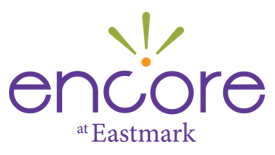Tips for Association Living
We want your HOA experience to be as positive as possible. Whether you are new to a homeowners association (HOA), or have lived in one for years, here are a few tips to help you make the transition to community living.
READ YOUR GOVERNING DOCUMENTS
When you closed on your new home, you received a lot of documents related to the HOA. Among them are the Declaration of Covenants, Conditions and Restrictions (CC&Rs). Along with your Architectural/Landscape Design Guidelines, these will give you an overview of your responsibilities within the HOA.
GET TO KNOW YOUR NEIGHBORS, GET INVOLVED IN THE COMMUNITY, FORM A NEIGHBORHOOD BLOCK WATCH
One of the advantages of living in an HOA is the sense of community. Some HOAs have websites, community activities lists, etc. Strike up conversations with your neighbors. You may make some friendships that will last for years. And, statistics show that forming a neighborhood Block Watch program significantly cuts down on crime.GO TO THE MEETINGS
Have a concern regarding the community? Let your Board know your concerns. They are there to serve you and the best interests of the Community.RESPECT YOUR NEIGHBORS AND THEIR PROPERTY
The governing documents generally have parking and barking dog restrictions. Abiding by these restrictions will go a long way in keeping peace and a sense of neighborhood in the community.SUBMIT PROPOSED CHANGES TO THE ARCHITECTURAL COMMITTEE
BEFORE INSTALLING THEM
Your CC&Rs generally require submission of some sort of plans prior to installation of any architectural and/or landscaping changes to your home. The purpose of these restrictions is to assure an overall theme running through the community. Failure to submit plans prior to installation may require you to incur the cost of removing your installation and bringing it into compliance with the governing documents. To save yourself time, money and aggravation, be sure to submit your changes to the architectural committee for the HOA before you do the work.BE INVOLVED
There are several committees, look into joining one and becoming involved with the events and activities going on throughout your community.Once you’ve done your part, what should you expect from the board and management company?
Board of Directors
The Board of Directors makes all the decisions for the Association as outlined in the Bylaws and CC&Rs for your Community. The Powers and Duties of the Board may include:
- Approve the annual budget
- Set the assessments annually
- Establish Rules for the Common Areas
- Hire/Fire Vendors
- Create/Oversee Committees
- Approve Repairs to Common Areas
- Enforce the Documents
- Pursue Moneys owed to the Association
As the Board is a volunteer role, the documents also allow for the hiring of a managing agent to help with the day to day operations of a community. This is where the Management Company comes into play.
A common misconception is that a community does not have a Board of Directors until the community is turned over to the homeowners. From the time the documents are drafts, often before ground breaks for the building of the first home, the association is fully in place, including the Board of Directors. During the time of Developer Control, the Board is made up of representatives from the development company. The governing documents specify when control of the Board is to be turned over to homeowner control. Typically this is when the community is 75% closed.
Management Company
The Management Company follows the direction of the Board of Directors. It cannot make decisions on behalf of the Community.
HOAMCO (Homeowners Association Management Company) is the management company for your Community, they are not the Board. The following is a list of some of the services they provide:
- Reviews Community Documents
- Collects Assessments
- Pays invoices
- Prepares Monthly Financial Statements
- Coordinates tax returns
- Assesses late fees per Fine Policy
- Establishes Bank Accounts
- Maintains Records of Meeting Minutes & Resolutions
- Coordinates Meeting Locations & sends notices to homeowners.
- Provides compliance inspections and sends violation letters to homeowners
- Performs regular property inspections
- Coordinates all maintenance and repairs
- Bids jobs as requested
- Prepares agenda for Board Meetings
- Attends Board Meetings as required
- Creates newsletters as requested
- Maintains database of homeowners
- Updates Board on current & pending legislation that affects Associations
- Monitors 24 hr. emergency number

